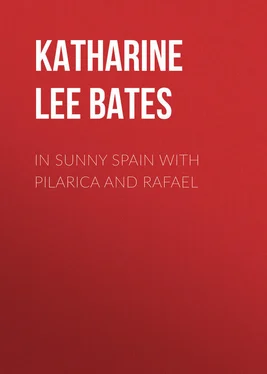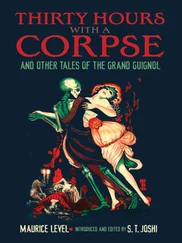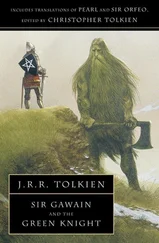Katharine Lee Bates - In Sunny Spain with Pilarica and Rafael
Здесь есть возможность читать онлайн «Katharine Lee Bates - In Sunny Spain with Pilarica and Rafael» — ознакомительный отрывок электронной книги совершенно бесплатно, а после прочтения отрывка купить полную версию. В некоторых случаях можно слушать аудио, скачать через торрент в формате fb2 и присутствует краткое содержание. Жанр: foreign_antique, foreign_prose, на английском языке. Описание произведения, (предисловие) а так же отзывы посетителей доступны на портале библиотеки ЛибКат.
- Название:In Sunny Spain with Pilarica and Rafael
- Автор:
- Жанр:
- Год:неизвестен
- ISBN:нет данных
- Рейтинг книги:3 / 5. Голосов: 1
-
Избранное:Добавить в избранное
- Отзывы:
-
Ваша оценка:
- 60
- 1
- 2
- 3
- 4
- 5
In Sunny Spain with Pilarica and Rafael: краткое содержание, описание и аннотация
Предлагаем к чтению аннотацию, описание, краткое содержание или предисловие (зависит от того, что написал сам автор книги «In Sunny Spain with Pilarica and Rafael»). Если вы не нашли необходимую информацию о книге — напишите в комментариях, мы постараемся отыскать её.
In Sunny Spain with Pilarica and Rafael — читать онлайн ознакомительный отрывок
Ниже представлен текст книги, разбитый по страницам. Система сохранения места последней прочитанной страницы, позволяет с удобством читать онлайн бесплатно книгу «In Sunny Spain with Pilarica and Rafael», без необходимости каждый раз заново искать на чём Вы остановились. Поставьте закладку, и сможете в любой момент перейти на страницу, на которой закончили чтение.
Интервал:
Закладка:
Katharine Lee Bates
In Sunny Spain with Pilarica and Rafael
FOREWORD
The verses in this story, with the exception of the two snatches, in chapters 6 and 14, of ballads of the Cid, I have translated directly out of Spanish folk-song. Some of these, especially riddles, and others, especially those sung in the circle-dances, have previously appeared in The Churchman and in my Spanish Highways and Byways and are used here by the courtesy of The Churchman publishers and of the Messrs. Macmillan Company.
Katharine Lee Bates.The Scarab. June 3, 1913.
I
PILARICA IN THE MOORISH GARDEN
AT last, at last, that tiresome stint of embroidery was done. The threads, no longer white, had tangled so often under the impatient tugs of those rosy little fingers that it was fully half an hour later than usual before Pilarica could jump up from the threshold, run back through the house to Tia Marta, display those finished three inches of “labors” and plead:
“Tia Marta, with your kind permission I will now go out to play.”
Tia Marta was stooping over a great, open chest in the inner room whose only other furniture was a wide, low bedstead and two canvas cots. All the family slept there except Pilarica’s big brother, Rodrigo, who was a student in the Institute of Granada and so, being a person of dignity, had the curtained box-bed in the kitchen. This outer room, like the bedroom behind it, was all of stone and so dim that the light from the doorway showed only a glimmer of copper and pewter on the side where the cooking was done. The bedroom had a window, so narrow that it seemed hardly more than a slit cut in the thick stone of the wall. There was no glass in the window and there were no rugs nor carpets on the cold, tiled floors.
Tia Marta, huddled over the big chest in the duskiest corner of all, could not have seen the embroidery well, even though Pilarica’s eagerness thrust it close against the squinting red eyes; but she scolded, for Tia Marta enjoyed scolding, quite as sharply as if every moist little stitch had been measured and found wanting.
“Worse and worse! The very gypsies would be ashamed to wear it. The donkeys would bray at it. What is to become of a girl born without the needle-gift? The saints take pity! But get you out into the sunshine, child, and play! This house is as dark as a wolf’s mouth. Out of doors with you!”
And Tia Marta thrust the strip of linen back to Pilarica with such a jerk that the needle flew off the thread, slid to the floor and, after a merry hop or two, hid itself in a crack. This was fun for the needle, but it kept Pilarica away from the garden for ten minutes more while her small palms rubbed over the worn, uneven tiles in anxious search. But as soon as she knelt down and prayed to Santa Rita, the clever saint who can find anything that is lost, the needle gave her knee a saucy prick and consented, after its run-away frolic, to be stuck into the cloth again. For, you see, the needle had been working hard, too, and wanted its bit of holiday as much, perhaps, as Pilarica wanted hers.
But the loss of those ten minutes out of her golden afternoon was a sore trial to the little girl and she dashed like a tiny whirlwind through the house to fling herself, sobbing and laughing both at once, into the arms of Grandfather. He sat, white-haired and dreamy-eyed, his guitar on the mosaic bench beside him, under the olive-tree before the door. It was so comforting to feel the tender clasp of the old, trembling arms and to hear the slow and broken but still sweet old voice that had crooned over Pilarica since her earliest memory.
“What’s this? What’s this? Dew on my red rosebud? Hush, Heart of Honey, hush! I have a new riddle for you.
“ ‘Little glass boxes
That sometimes leak,
But open and shut
Without a squeak.’ ”
Pilarica promptly pointed her two forefingers at her still tearful eyes.
“That is easy,” she said, slipping to her knees upon the ground and leaning against the end of the bench. “Please tell me one, a bad, rude one, about a needle. I do hate needles so.”
Grandfather did not have to think long, for he was the wisest man in Spain, as all the children on the Alhambra hill would have told you, and he knew more rhymes and riddles than all the professors in all the universities and all the preachers in all the pulpits put together. So presently he began to repeat in the soft, singsong tone that always soothed Pilarica like the murmur of running water:
“ ‘I have only one eye, like the beggar who sits
In the great church porch at Cadiz;
My temper is sharp, and yet I am
A favorite with the ladies.’
Will this do?” he asked. “For there is another, and I see that just now the needle is no favorite at all with my little lady here.”
“I would like, please, to hear the other,” replied Pilarica promptly, for surely one could not know too many riddles, especially about anything so vexatious as a needle.
And Grandfather, after letting his fingers wander for a minute over the strings of the guitar to refresh his memory, chanted this other:
“ ‘I’m little, but do me no wrong,
For my temper is sharp and spry;
I’m not a man, but my beard is long,
And it grows right out of my eye.
I’m as small as a spear of wheat in spring,
And yet it is I who dress the King.’ ”
“One more, dear Grandfather, if you will do me the favor,” coaxed the child.
“One more,” assented Grandfather, lightly kissing the red carnation which Pilarica, like a true little Andalusian, had tucked into her rippling mass of soft dark hair. “One more, but not about the needle this time.
“ ‘O bright long paths to Fairytown!
What shining paths do I mean?
They are not gray, nor black, nor brown,
Nor blue, nor white, nor green.’ ”
Dear me! What paths did he mean? Pilarica sprang to her feet and looked about her on a scene of wonderful beauty. For the two gloomy rooms in which the family ate and slept were all that remained of an old Moorish palace, once as dazzling in its strange and delicate splendor as if it had been carven out of moonlight and jeweled by the frost. Time had destroyed those silvery walls and towers, those airy arches and columns, but it had dealt gently with the lordly pleasure-garden, which only grew lovelier and lovelier through the centuries of neglect. When the Christian armies, long ago, drove the grave, dark-faced, turbaned Moors down from the Alhambra hill, out of Spain, and back over the narrow strip of sea to the north coast of Africa, the household that had to flee from this fair home must have turned at the garden gate and sighed as they looked their last on their lost Eden. Now the roses clambered over the broken marble basins of the seven fountains, but the sparkling jets of water were as limpid as ever and, when they were all playing, Pilarica could bathe under the spray of a different fountain every day in the week.
What paths did he mean? “Not gray, nor black, nor brown,” for there were no hues so dull as these in this rainbow wilderness. “Nor blue, nor white”? There had been walks of sky-tinted porcelain and creamy marble once, and other walks of many-colored tiles, set in patterns of stars and crescents and circles, but the myrtle hedges had sent out rambling sprays of yellow blossoms to clamber over these, and fallen orange flowers and jasmine petals, acacia blooms and drifting leaves of all sorts helped with their fragrant litter to hide the pavement of those winding ways. “Nor green”? There were trees upon trees in the garden, solemn cypresses and soaring palms, magnolias with their great, sweet blossoms, cedars with level boughs, banana trees and lemon and citron and pomegranate, oleanders with their clusters of snowy flowers, and the leafless coral tree, blooming in brilliant scarlet. Only the birds, whose wings went flashing from one beckoning branch to another, knew how many, many green paths there were amidst the leafage of those marvellous boughs. And while Pilarica was still gazing with happy eyes right up and away into that waving world of twinkling sprays and glowing blossoms, a sudden ray of sunlight struck across a pink-plumed almond and slanted down to Pilarica’s swinging feet.
Читать дальшеИнтервал:
Закладка:
Похожие книги на «In Sunny Spain with Pilarica and Rafael»
Представляем Вашему вниманию похожие книги на «In Sunny Spain with Pilarica and Rafael» списком для выбора. Мы отобрали схожую по названию и смыслу литературу в надежде предоставить читателям больше вариантов отыскать новые, интересные, ещё непрочитанные произведения.
Обсуждение, отзывы о книге «In Sunny Spain with Pilarica and Rafael» и просто собственные мнения читателей. Оставьте ваши комментарии, напишите, что Вы думаете о произведении, его смысле или главных героях. Укажите что конкретно понравилось, а что нет, и почему Вы так считаете.












